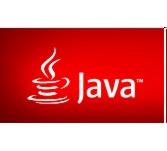| JDK 9 Early Access Now Available |
| Written by Kay Ewbank |
| Thursday, 16 October 2014 |
|
You can now try out the new JDK 9, though only in an early adopter version at the moment.
The next version of JDK, currently under development, is being made available to early adopters. Announcing the availability in the technical keynote at JavaOne, Mark Reinhold, Chief Architect of the Java Platform Group for Oracle, gave some details of how this fits with Java 9 and beyond.
The JEPs targeted to JDK 9, so far, are:
JEPs, Java Enhancement Proposals, are being used to let new features be discussed and developed without going through a full formal specification (JSR). JEPs that are popular and successful will be put forward as part of the next full formal specification. The first JEP in the target list for JDK 9 is the improved process API for controlling and managing operating-system processes. The motivation for this change is the fact that the current API often forces developers to resort to native code. Java SE provides limited support for native operating-system processes. It provides a basic API to setup the environment and start a process. The process streams can, since Java SE 7, be redirected to files, pipes, or can be inherited. Once started, the API can be used to destroy the process and/or wait for the process to terminate. Enterprise apps and containers with several Java virtual machines and processes need the ability to get the pid (or equivalent) of the current Java virtual machine and the pid of processes created with the existing API. They also need to be able to get and set the process name of the current Java virtual machine and processes created with the existing API, and to enumerate Java virtual machines and processes on the system. Other changes include the ability to deal with (and destroy) process trees, and to deal with many sub-processes, perhaps multiplexing the output or error streams to avoid creating a thread per sub-process. The improvements to contended locking are designed to improve the performance of contended Java object monitors in situations where multiple threads compete for access to objects. The lightweight JSON API lets your apps consume and generate JSON documents and data streams. It includes parsing APIs that provide a choice of parsing token stream, event stream, or immutable tree representation views of JSON documents and data streams. There’s also a generator style API for JSON data stream output and for JSON "literals", and a transformer API that takes as input an existing value tree and produces a new value tree as result. The long term goal for Java SE 9 is the modularization of the source code as part of Project Jigsaw. This will enable developers to work with Java SE on smaller, low-power devices. Other goals include improving the security and maintainability and enabling improved application performance. This round of JEPs starts that process, but much more work on modularizing the JRE and JDK images is still in the future. You can download the current early adopter release from the JDK 9 project website.
More InformationRelated ArticlesJava 8 Launched With Supporting Line-Up
To be informed about new articles on I Programmer, install the I Programmer Toolbar, subscribe to the RSS feed, follow us on, Twitter, Facebook, Google+ or Linkedin, or sign up for our weekly newsletter.
Comments
or email your comment to: comments@i-programmer.info |
| Last Updated ( Thursday, 16 October 2014 ) |



